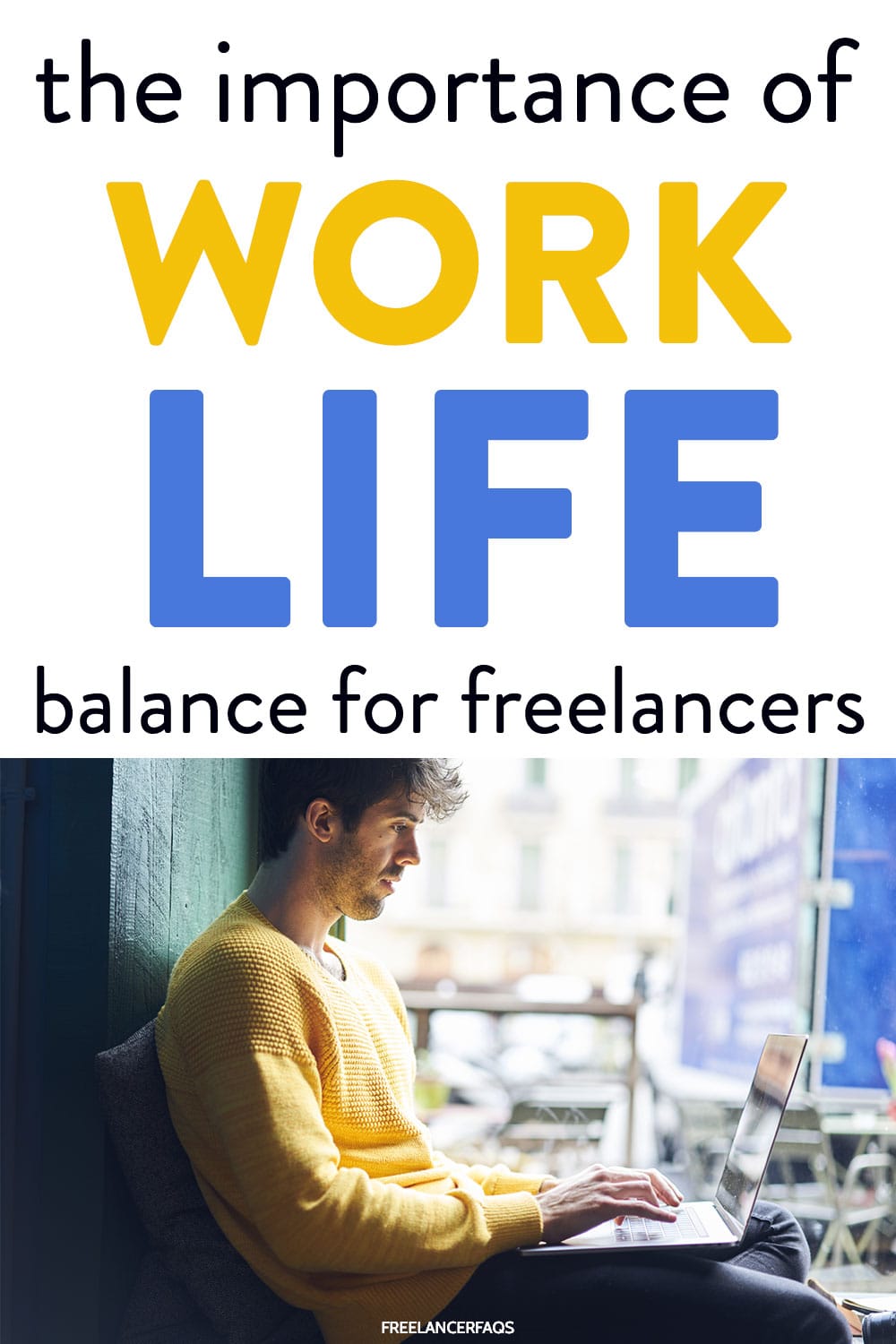Freelancing has become an iconic part of the 21st-century workforce as tens of millions of individuals in the U.S. alone have left full-time employment to work for themselves in recent years.
With such a huge influx of “fresh freelance blood,” so to speak, there was bound to be a natural shift in the landscape of the industry.

This is especially true when it comes to classic freelance struggles like maintaining and understanding the importance of work life balance.
Here are a few of the ways that the modern freelance workforce is actively evolving and understanding the importance of work life boundaries as the millions of self-employed laborers survive a pandemic and prepare for the future.
The Importance of Work Life Balance
Freelancing is often associated with part-time work, as many opt to freelance in addition to their own full-time endeavors.
However, a steady shift in the full-time-paradigm has been taking place. For instance, one report (via Forbes) found that the number of freelancers who work full-time in their industry rose from 17% in 2014 to 28% in 2019.
This shift from nearly one in five to one in three indicates that more individuals are truly trying to earn their bread and butter from their freelance work.
This trend toward full-time freelancing has the potential to exacerbate the ongoing problem of maintaining work life balance, however.
The coronavirus pandemic served to underscore the root of the issue when tens of millions of salaried workers shifted to work-from-home status and found that they, too, struggled with things like hyper-productivity and an inability to set boundaries or unplug.
These are issues that freelancers have faced for years now.
Many freelancers typically find that the WFH scenario creates a bit of a work-life seesaw, as they tend to the frantic back and forth of personal and professional life on the homefront.
The best solution comes from pursuing gigs that are stable, predictable, and long-term.
If you can cobble together two or three of these, it can provide a sense of stability that makes work-life balance much easier to achieve.
In addition, conducting financial planning on a monthly and even a yearly basis can help to avoid spending money now that you may need when work temporarily dries up in the future.
Entrepreneurship is King

Now, as always, freelance remains a “hustle-focused” line of work.
The freelancer who can go the farthest, the cheapest, the longest will usually win out. Nevertheless, freelancing continues to remain a financially lucrative line of work for many individuals.
The key to survival in the modern, competition-laced freelance market is no longer being the best at your craft, though. While things like competency, experience, training, and skills are still essential, the freelancers that are truly able to succeed are those who are genuinely entrepreneurial in nature.
This comes from the inherent needs and responsibilities associated with running your own business.
While freelancing and small business ownership are technically different, in many ways they’re two peas in a pod — especially administratively speaking.
Both require invoicing, paying bills, tracking expenses, finding clients, and paying your own taxes.
And, of course, if you can’t handle these within your normal work hours, they can have a detrimental effect on the importance of work life balance.
The Struggle to Maintain Mental Health
Mental health is another common challenge that continues to face freelancers.
This one is largely precipitated by the aforementioned struggle with work from home scenarios and an inability to maintain a sense of life balance.
In addition, the pandemic left millions of freelancers struggling to stay employed. In July, over half a year into the pandemic, more than one in four self-employed individuals were still unable to work, whereas just 11% of private wage and salaried workers and only 6% of government workers were without employment.
This has led to a running struggle with things like stress and anxiety from juggling clients and tending to administrative tasks, depression from isolation, and general burnout from an excessive workload.
While things like a creative change of scenery, working fewer hours, and planning in “mental health weeks” can help, the issue of mental health for freelancers seems likely to persist into the future.
Transforming Freelance Expectations
Finally, there’s an interesting trend of transforming freelance expectations.
On the one hand, laws like California’s freelancing bill have created a sense of uncertainty regarding the future of freelancing, especially in industries like ridesharing.
In addition, as millennials continue to have a greater impact on the workplace, they’re ushering in trends like 4-day work weeks, remote work, and a focus on productivity.
 These emphases are syncing up traditional workspaces with the freelance way of life.
These emphases are syncing up traditional workspaces with the freelance way of life.
This could have the potential to either siphon freelance workers back into a salaried format or even meld the freelance and traditional work worlds back together at some point in the future — only time will tell.
In either case, the current workforce is finding itself increasingly steeped in WFH and flexible work scenarios.
Hopefully, this will provide a sense of understanding and camaraderie as freelancers and full-timers collectively pursue a solution to modern work life balance.
Freelance Trends and the Importance of Work Life Balance
The importance of work life balance will always be a struggle for the self-employed.
However, the current trends do seem to indicate that the challenge is being faced head-on by many freelancers and even salaried workers besides.
Whether it comes through tending to mental health, honing those business skills, or adapting to transforming expectations, freelancers should have plenty of hope that the endless pursuit of work-life balance may begin to bear greater fruit as the 2020s roll on.



Leave a Reply